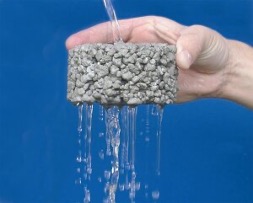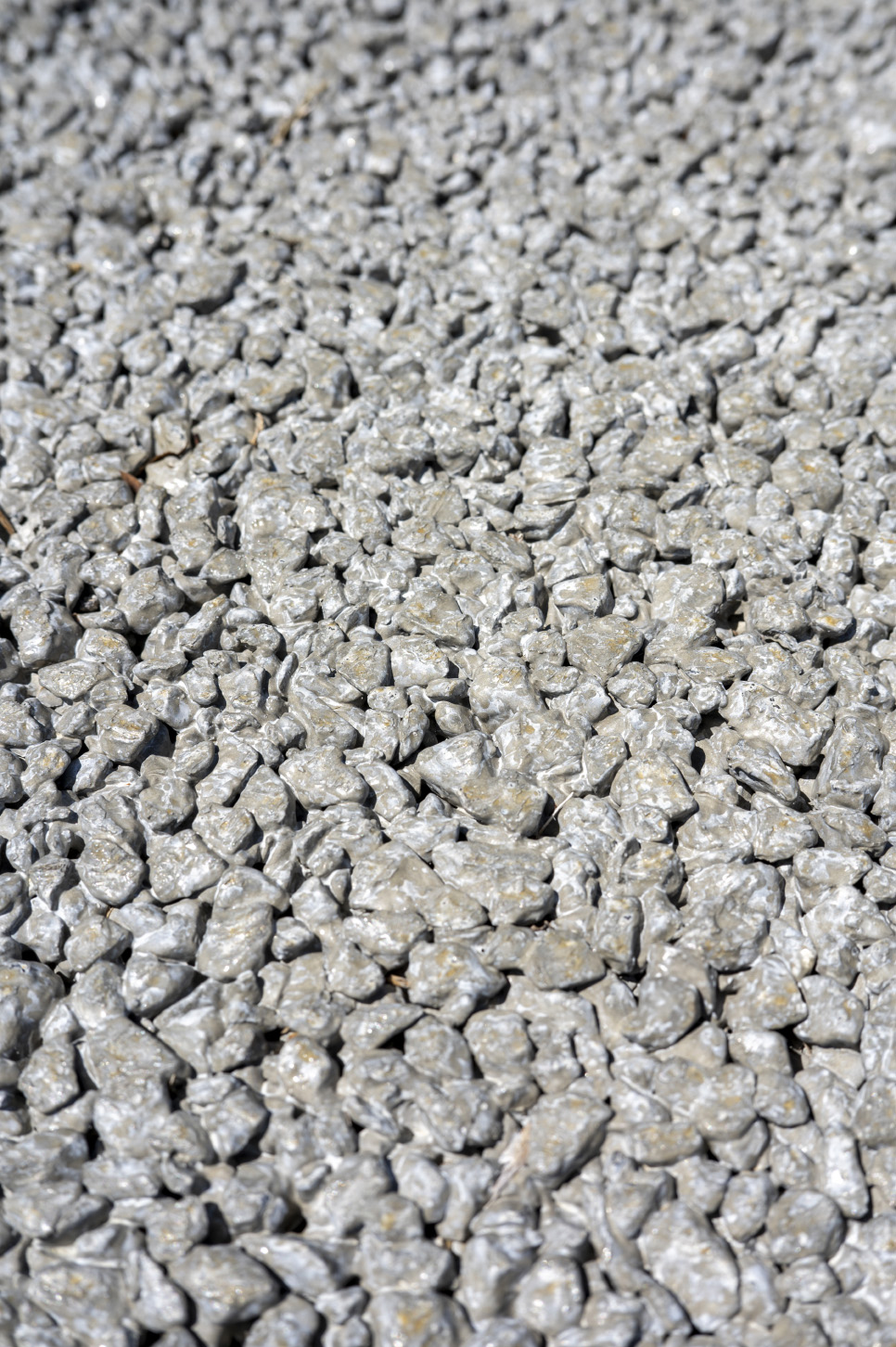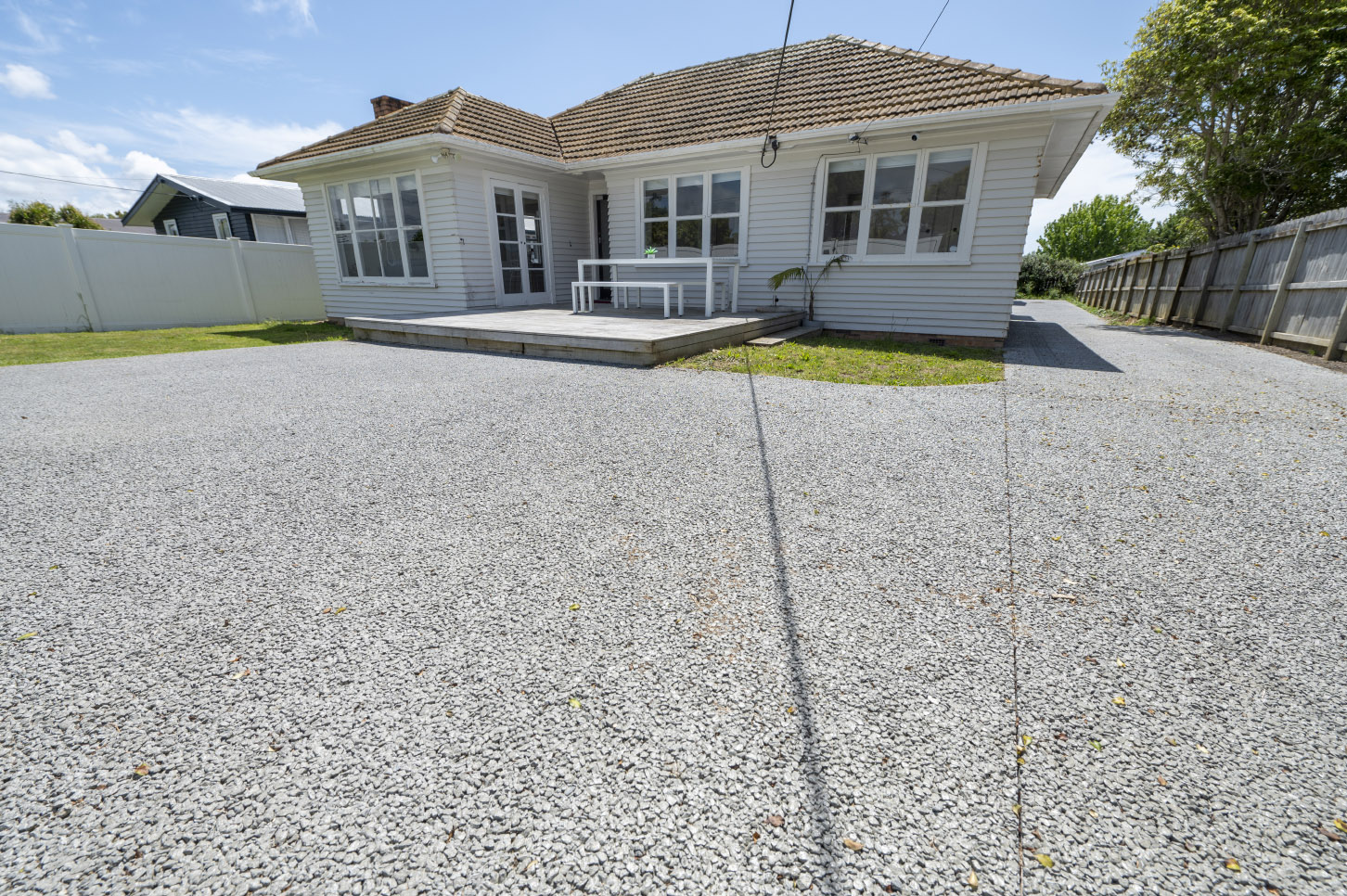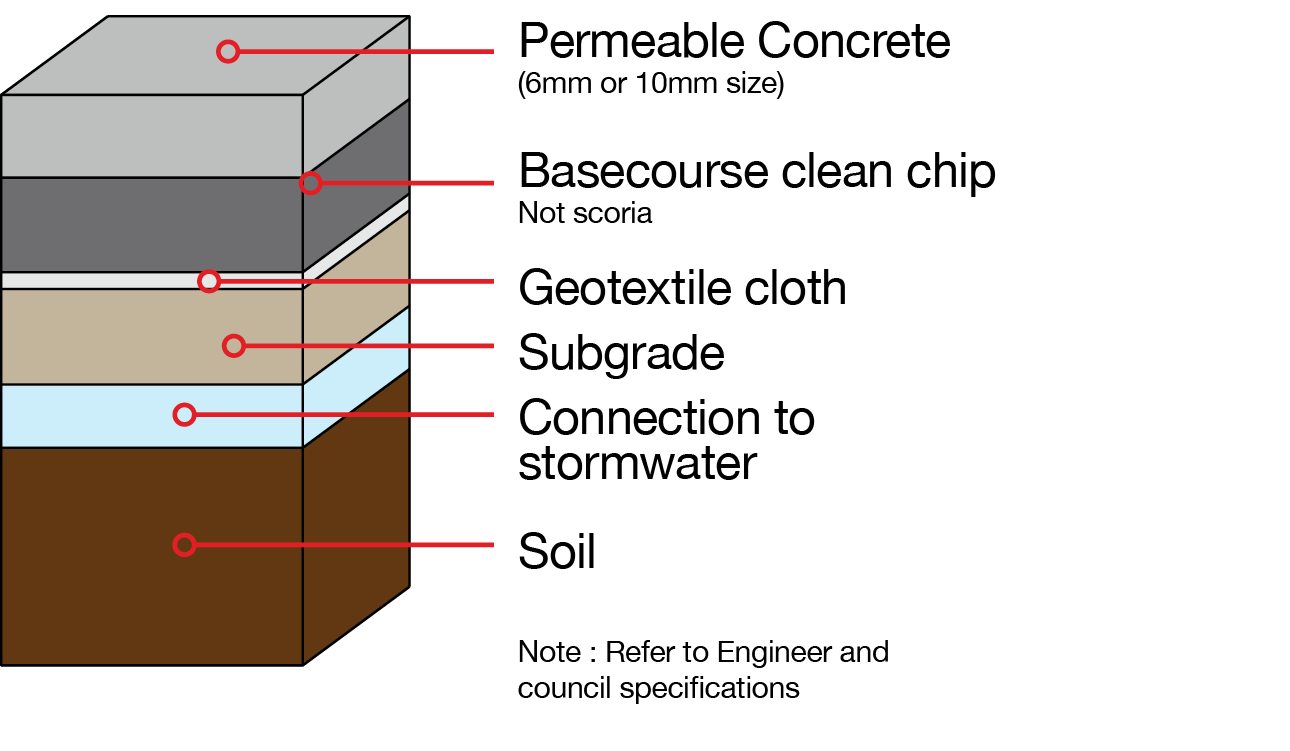Atlas Permeable Concrete
Permeable concrete solutions for a greener tomorrow
Atlas permeable concrete represents a sustainable and innovative approach to New Zealand’s urban development. With unprecedented rainfall in 2023, impervious surfaces contributed to rapid runoff into drains, rivers and streams contributing to significant flooding. Atlas permeable concrete addresses critical issues related to stormwater runoff. The porous characteristics prevent surface pooling allowing water to flow through to the ground below.
Maximise space with Atlas Permeable Concrete
Atlas permeable concrete allows for maximum building coverage. It provides a surface which is excluded from the Auckland Unitary Plans’ definition of an impervious area. Choosing Atlas permeable concrete for paths and driveways supports your ability to meet the standards.
Atlas Concrete – Caring for the environment
With global concern about pollutants entering our waterways you can be confident in knowing your decision to use Atlas permeable concrete will assist in filtering suspended solids from stormwater runoff. The interconnected voids within its structure act as a filtering system preventing microplastics and debris from become pollutants to our waterways.

Frequently Asked Questions
Will the finished product look different?
Yes – Because Permeable Concrete has an open texture.
Can Atlas permeable concrete be coloured?
Yes – Colour may vary from samples.
Is permeable concrete as strong as traditional concrete?
Strength of permeable concrete relies heavily on the placing technique. Talk to us about a placer for your project.
Where can i get more information?
Contact your local Atlas Concrete Account Manager.


Installation
Before planning your permeable concrete project, Atlas Concrete strongly recommend consultation with qualified professionals. Civil engineers and experienced contractors can ensure proper design, installation and maintenance practices are followed to achieve optimal results. They can also advise on local regulations, zoning codes and environmental guidelines. Before initiating any concrete project, it is essential you obtain necessary permits, approvals and compliance with all relevant standards and regulations.
Choosing the right installer
Permeable concrete should always be installed by a concrete layer qualified and experienced with permeable products.
Contact your local Atlas Concrete office or your Atlas Concrete Account Manager for a list of installers recommended by Atlas Concrete.

Maintenance
All permeable concrete systems require maintenance to retain their functionality. Although providing a filter for debris, an accumulation of sediment or contaminants can clog the system and reduce the water filtration. Property owners and managers are responsible for implementing routine maintenance such as sweeping and vacuuming. The frequency of required cleaning depends on many factors including tree cover and traffic volume. Atlas Concrete recommends that Atlas permeable concrete surfaces are thoroughly cleaned every 6-12 months for optimal function.
Technical Specifications
Infiltration: Atlas Permeable Concrete permits drainage of up to 9 Litres per minute (l/min).
Standards: Atlas Permeable Concrete complies with NZS 3014
Approvals: Atlas Permeable Concrete has been approved by Auckland Council for Driveways and Paths.
Performance may be affected if maintenance is neglected.
Recommended for the Sub-base layer are Atlas recycled concrete, drainage and sub-base products.
Contact Us
For more information about permeable concrete and how it can benefit your project, please contact your local Atlas Concrete Branch
